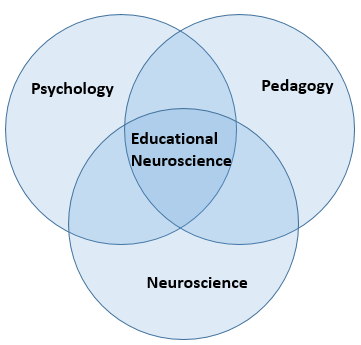
by leveraging on heterogeneous data (e.g., pedagogical data and learning assessment data) from the education domain, we first extract the concepts of subjects or courses and then identify the educational relations between the concepts. more specially, we adopt the neural sequence labeling algorithm on pedagogical data to extract instructional concepts and employ probabilistic association rule mining on learning assessment data to identify the relations with educational significance.
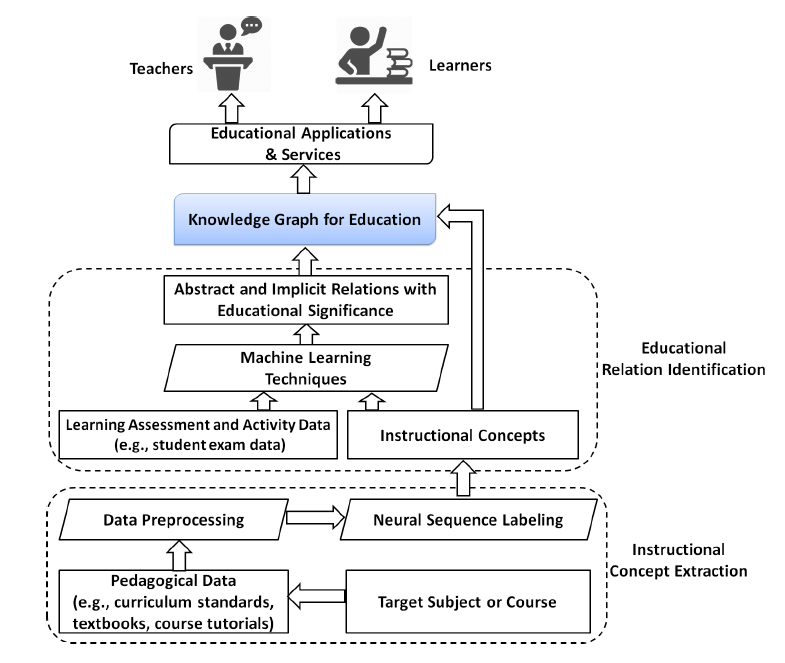
a) prerequisite-driven deep knowledge tracing
knowledge tracing serves as the key technique in the computer supported education environment (e.g., intelligent tutoring systems) to model student’s knowledge states. we incorporate the knowledge structure information, especially the prerequisite relations between pedagogical concepts, into the knowledge tracing model.
b) learning activity recognition and analytics
we set out a framework for learning analytics using commodity wearable devices to capture learner’s physical actions and accordingly infer learner context (e.g., student activities and engagement status in class).
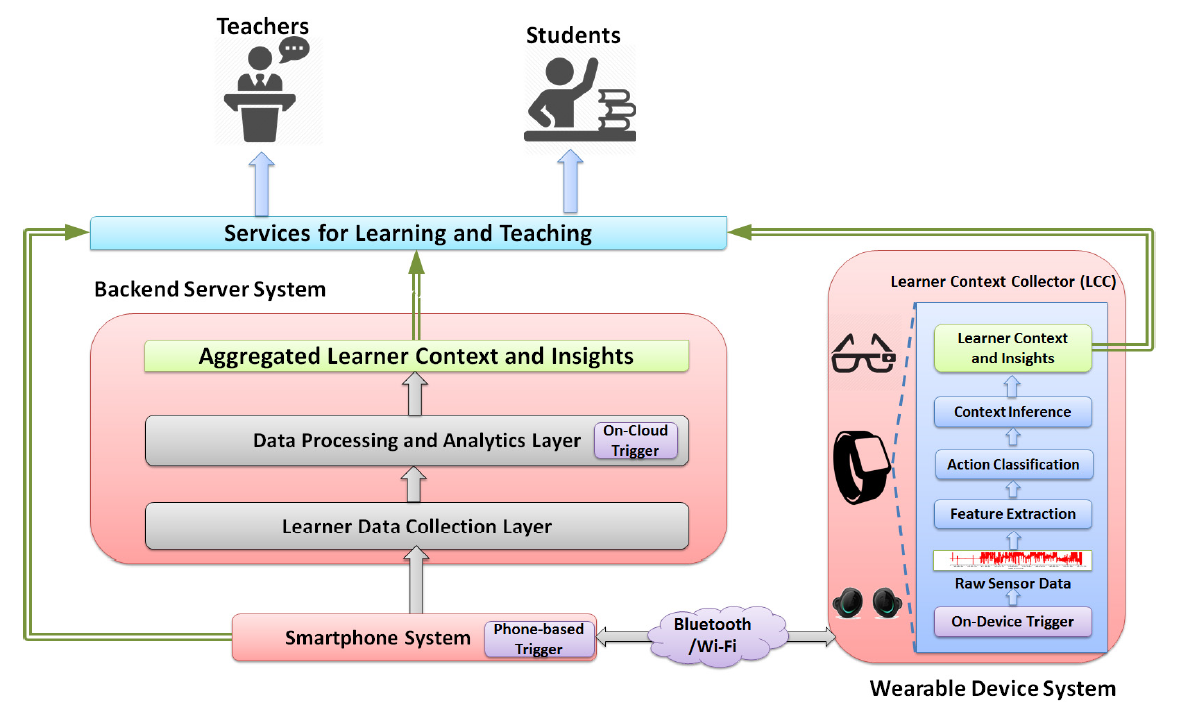
driven by the latest technologies in artificial intelligence (e.g., natural language processing and emotion recognition), we design a novel robot system to provide a more pleasurable learning experience and better motivate learners. the large-scale deployment of slp in local schools and families would bring both research and commercial opportunities.
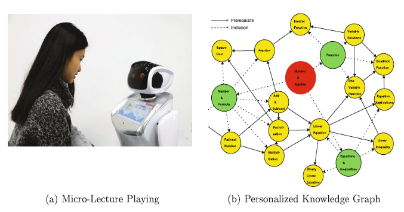
in order to improve teachers’ and parents’ ability on educating students for their comprehensive development, we design and develop an intelligent assistant named ai educator. it includes three parts: collect cases of solving mental and behavioral problems successfully from teachers; construct a knowledge graph of solving mental and behavioral problems of children, design and develop an intelligent assistant based on the above knowledge graph.
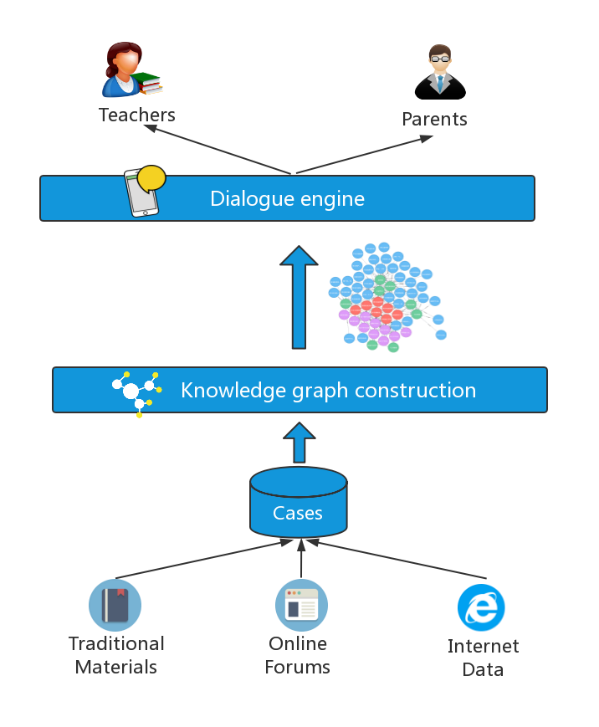
solving non-routine problems is one of the most important skills for the 21st century. psaa system aims to assesse how an individual acquires information to solve real-life problems with game scenarios, monitor how students solve the problems by recoding their steps into log files, and establish a framework of how domain-specific interactive problem solving assessment should be conducted.
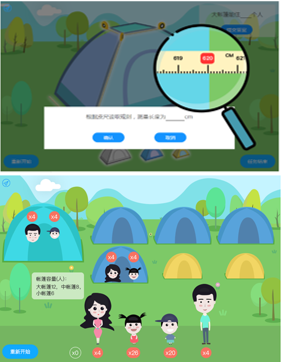
by investigating the technologies of internet of thing, wearable sensors, cloud computing and big data, we focus on comprehensive evaluation of physical health and recommendation of online exercise regimens for secondary school students.
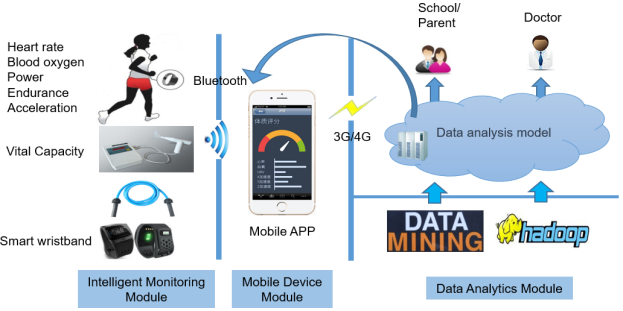
radar math adopts machine learning and natural language processing techniques to automatically assess and evaluate the answers of math questions. the designed assessment system mainly uses the deep learning models to assess the short-answer open questions, and third-party tool (e.g., stack) to auto-score questions with only formulas and symbols. the system also performs the specific error analysis and accordingly provides the proper feedback and interventions to students. the assessment results would also update the learning status on the student’s individual cognitive map to help them better understand their cognitive status.
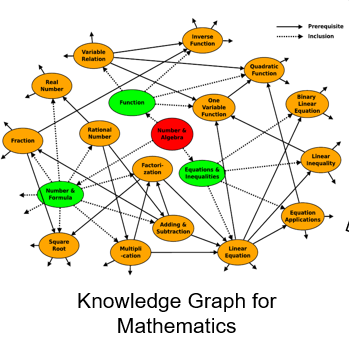
the recommender system creates profile for individual student, and then match it with admission policy and expert knowledge to support students to make smarter choices.
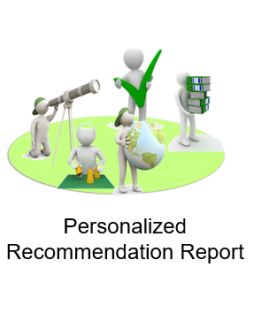
the beijing education quality map app adopts the data visualization to present education quality information to education stakeholders and decision-makers.
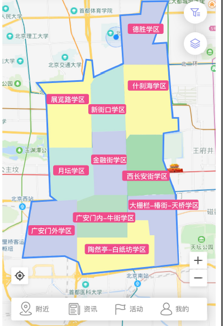
investigate students’ learning outcomes with self-reported data and egg data
investigate and enrich teachers’ knowledge in brain science to help in education
